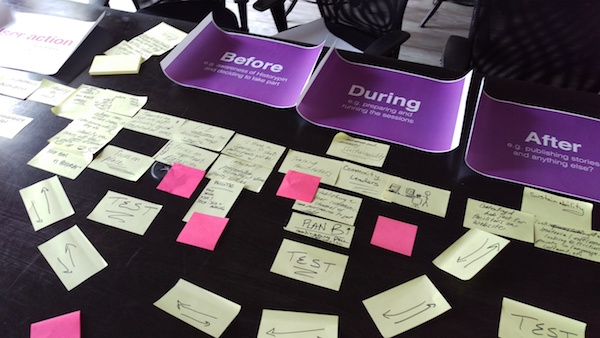As part of our work funded by the Institute for Library and Museum Services and the Knight Foundation, our team has already carried out a series of workshops examining the role of rural, tribal libraries in New Mexico, and using human-centered design practices to find creative ways of exploring digital community memory.
In early November, we gathered in New Orleans during and after the Cultural Heritage and Social Change Summit to dig into the process of engaging libraries and community partners in events focused on community memory. We looked at the process of how community memory sessions might look and how rural libraries in particular can be equipped to run these types of events and begin measuring the impact on communities.
We’re working with a wide range of partners on these collaborative projects. Historypin is coordinating the projects from the national level, with state level coordination from the New Mexico State Library’s Tribal Library Program and the University of California, Riverside. Both New Mexico and California will have an in-state community assessment researcher who will be working directly with the institutions in their state and compiling their findings. In New Mexico, we’re working with five public libraries, including Laguna Public Library, Santa Clara Pueblo Community Library, Santo Domingo Public Library, Jemez Community Library and Mescalero Community Library. In California, the University of California, Riverside will lead community assessment research through collaboration with the History Department, the Native American Educational Program, and the California Center for Native Nations, a research center devoted to community-based research. JFK University Museum Studies will assist with national literature review and assessment methodology, bringing their expertise with smaller cultural heritage organizations, including work with tribes in California. We’ve also gathered at the Association of Tribal Archives, Libraries, & Museums (ATALM) conference, both for planning and open dissemination of our findings. Jennifer Himmelreich is leading the research and facilitating workshops together with Historypin’s Jon Voss.
We’ll be reporting our progress on these projects on this blog, so please stay tuned. And feel free to get in touch with Jon Voss if you’re interested in participating in these kinds of projects in the future.
